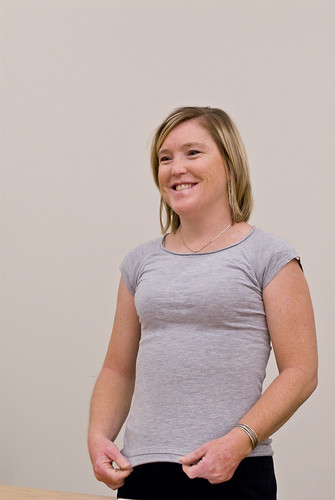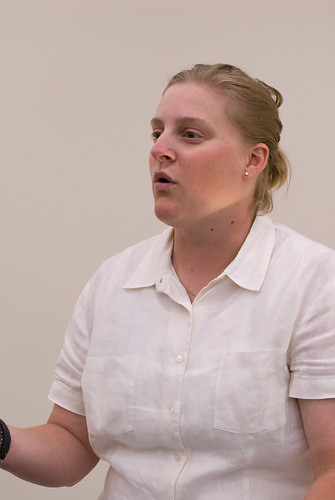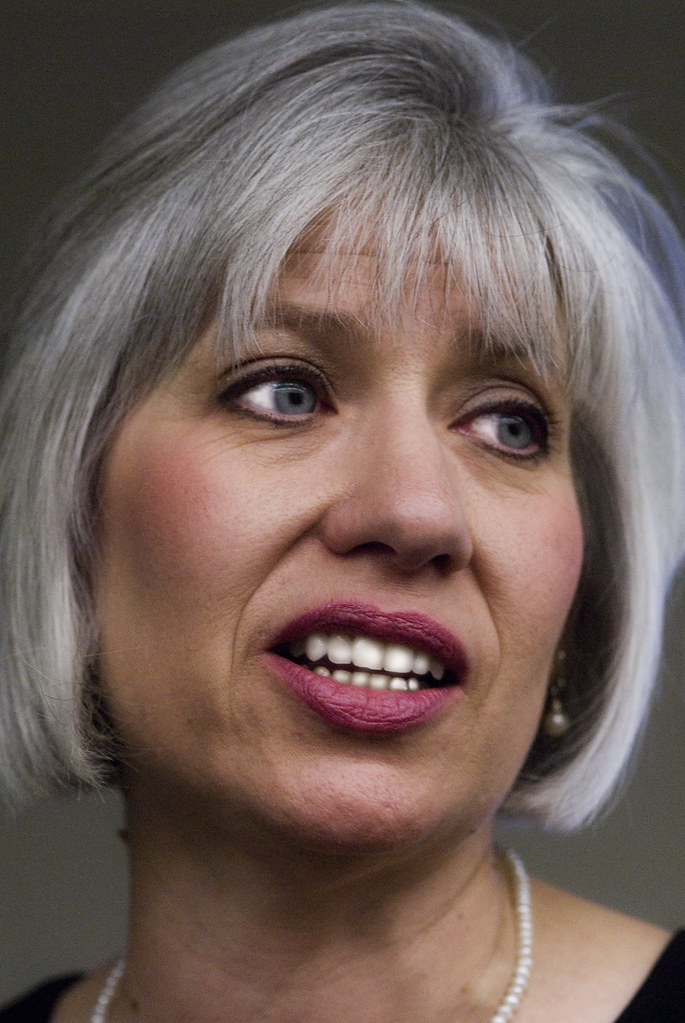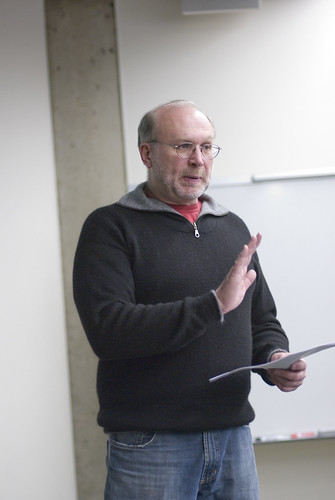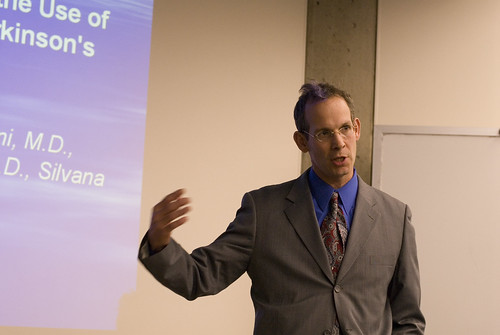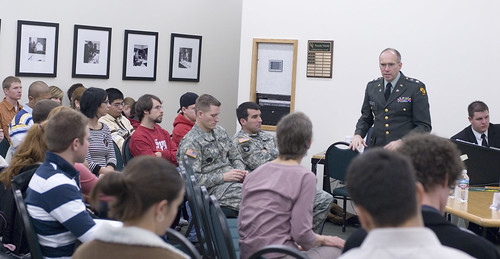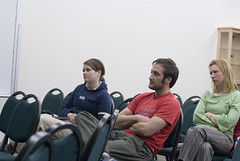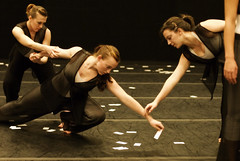The Center for the Study of Ethics kicked off the Fall 2007 season the evening of September 5th with a paper by Dr. Pierre Lamarche, fresh from his year long sabbatical. Pierre read from an upcoming book a section called:
Of a Non Saying that Says Nothing: Levinas and Pyrrhonism.
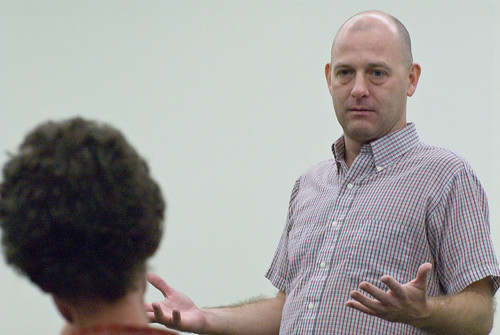 Pierre Lamarche
Pierre LamarcheLamarche carefully layed the groundwork for the context of his paper, as the audience was mostly made up of sophomore students enrolled in the mandatory "Ethics and Values" class and then read the paper with his usual wake-you-up style. The groundwork consisted of explaining Levinansian ethics, according to Levinas existing
prior to theory (and, specifically, to ontology) and how Levinas used the tradition of skepticism and its recurrence over time to rebut the charge of logical inconsistency, a self-refuting hypothesis, in his theory of ethics. He described the ethic as the basic value in human interaction, one of "I recognize you, human, and open to you without requiring a reciprocal transaction" as well as the promise to do no violence.
In response to the charge of the self-refuting hypothesis Levinas claimed solace in the "eternal return" of skepticism. There is a difference, he explained, between the "saying", which hearers instinctively knew was true, and the "said" which was open to the charge of logical self-refutation.
But others, as Lamarche pointed out, have critiqued Levinas' appeal as doing violence to skepticism. Pierre layed out the "most interesting" form of skepticism, the Pyrrhonian. Rather than a theory, these skeptics practiced "lack of belief" as a therapy rather than as a "theory". The skeptics never wrote down "ideas" but lived a life without beliefs, experiencing but not reducing that experience to belief, to some assertion of truth.
Levinas' violence to the skeptics came from attempting to "make them speak", to make them offer theory, which they eschewed. What Pyrrho did was to live a life unsullied by such notions, and rather act as it seemed he ought. Thus, to great ridicule, he lived with his sister, washed the piglet, and did what other's believed to be "women's work".
Lamarche offered that perhaps Levinas' could solve this problem through scholarship, changing "skepticism" to "negative dogmatism", and thereby avoid the critique. But, he ended his paper by asking a fascinating question: Is there a way that the skeptics actions might look similar to the Levinasian approach of the other? Is the "saying", rather than the "said", the model of action, unbridled and encumbered by belief that the Pyrrhonian lived? He asked in his last line:
Would a response, devoid of belief, to nothing but the other as the other appears, begin to approach a fundamental priority of what is called “ethical” action, over theory, theme, principle, category—a fundamental asymmetry that demonstrates itself in what people actually, thoughtlessly, do?
A wonderfully delicious lecture.
